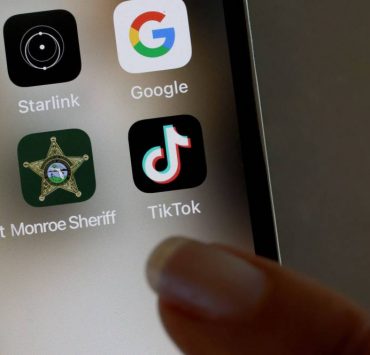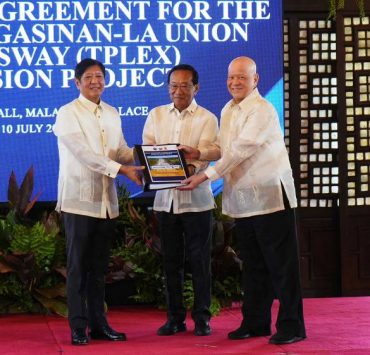‘Grounded in reality,’ sales decisions should be

Cheri Moran serves as vice president of sales at Universal Robina Corporation (URC), making her the first female to hold this position. Previously, she made history as the first female sales director at Coca-Cola Philippines. Moran is part of the inaugural batch of winners of the Mansmith Sales Masters Awards, the marketing industry’s first sales awards. In this interview, Moran shares insights into how strategic decisions and initiatives have directly influenced sales growth and market positioning at URC.
Question: Despite the challenges posed by the pandemic, you successfully reversed a three-year decline in URC’s key account business, achieving record-breaking numbers despite going through a pandemic. How did you navigate these obstacles to achieve such impressive results?
Answer: There is power in being grounded in reality and having the courage to pivot. Nobody knew what we were going to be up against in those years of lockdown. But in a time when we were forced to be disconnected from each other, we at URC went for intentional connection—with our people, with our teams and more importantly, with our customers and partners. All of them were facing similar yet varying degree of challenges, and we had to understand deeply so we could face our joint realities, accept the brutal facts and pivot our way to recovery and ultimately growth.
1. Showing up (it’s half the battle): Many of us, given our nature to fix things, prefer to engage when we already have a solution at hand. But the pandemic is something nobody had a playbook for; therefore to understand the unique customer needs, we increased our level of engagement internally and externally to be overt in sending the message that we can figure things out together. We chose to be there. We chose to be present.
2. Clarity of business challenge: Being very clear and pointed on what business challenge we were trying to solve was critical to address one obstacle at a time. We understood that we could not solve the world’s problem, but we could look at pockets of opportunities and see if it would work. If it did, we would scale. If it didn’t, then we would pivot and try again until we get it right.
3. Learning to unlearn and re-learn: Every playbook we had on strategy and execution was put to test and we had to make tough choices to not do the things we’ve always done if we want a result that is relevant to the times. We had to activate our learning muscles at an accelerated manner to keep up with the changing marketing dynamics—again with a purpose of being grounded in reality.
Q: Your efforts in revitalizing URC’s trade servicing competencies earned the company prestigious Industry Best-In-Class recognition. Can you elaborate on the skills and strategies you implemented to substantially improve URC’s ‘Preferred Partner’ status in the Retail Advantage Survey, especially considering the leap from 13th place to consistently rank among the top 5?
A: Before we take the lens of skills and strategies, I would start with our belief in URC that there is always something we can do to be better. Even when we were progressing, we would take a win or a loss from a place of humility, being rooted in the thinking that we always have something to learn and from there we can define our new level of best. Yes, we would celebrate small and big wins together as team then we would say, let’s take this win with us, be inspired with it and go out there yet again.
1. Putting people first: Cared-for people will care for others and care for the business. Therefore, our team’s overall health is always a priority. While we are expected to deliver a set key performance metrics, we do not see members of teams as mere numbers who deliver numbers; we see them as human beings who have immense value on and off work. We see ourselves to be in a business of people who, in turn, build our business. Ensuring we have a positive, nontoxic environment is not something we put on paper but we live by everyday. And that’s why even though our work arrangement is hybrid, you would see that our office spaces are full with lots of engagement because we like being with each other. On Sunday evenings, we are excited to go to work on a Monday.
2. Ruthless fundamentals: Complex problems become digestible when simplified. We employed the discipline of being clear on driving brilliant basics to fix things and be consistent at it. We believe that by keeping our fundamentals in check everyday every time, we will have the capability to solve complex problems and execute at a higher level. We constantly revisited our cadences and the way we tracked our performance to ensure we are able to catch anything we needed to adjust. By doing so, we get to connect how far or close we are to the goal, our realities to the vision we have, then we calibrate.
3. The mindset of what’s next: After a win or a loss, we would have the mindset of being constructively discontent. As we celebrate wins, we digest what are the things we did right so we can have repeatable success and as we take our losses, we assess what we could have done better, define tangible steps to take and not commit the same mistake.
Q: You’ve spearheaded a significant expansion of URC’s business-to-consumer e-commerce sector. What were the key initiatives you implemented to achieve such rapid growth, and how do you plan to sustain this momentum?
A: We aimed to serve consumers via digital means—using technology and latching on to the ever-developing habits of the Filipinos. The digital route to market was redefined, via new partners, enhanced ways of working, new channels, new programs, new services to develop closer relationships with the Filipino consumer. We stepped up our digital commerce landscape by being intentional in driving the consumer side via the main platforms and quick commerce partnering and also developing a digital loyalty program for our sari-sari stores community. We employed measures to drive traffic, visitors and conversion in the sites we were present.
To sustain this, we will continue to be clear on the role of this channel for us in our whole consumer push objectives and distribution play relative to the categories we are in.
Q: Your Beverage Solution Center initiative, previously at Coke, has been recognized globally for effectiveness, placing in the top 1 percent in Asia and top 5 percent worldwide. Can you walk us through the genesis of this initiative and the specific impact it has had on category incidence, foot traffic and immediate consumption?
A: There was only one job to be done ingrained in all of us in Coca-Cola—a Coke in every hand. The insight during the inception of the beverage solution center was that this category is not usually on the shopping list of a supermarket shopper. They would put essentials in the list and buy a Coke on impulse when the shopper sees it. We realized that it’s not a destination category but rather an impulse category. Because of this insight, we were able to provide a category story to our partners to transfer the carbonated soft drinks aisle from its current location at the back of the store to the front to increase visibility from the moment shoppers enter the store and be reminded before they check out. This move, combined with consumption and occasion-based on-shelf shopper communications with the right activation levers, allowed us to increase category incidence by driving foot traffic into the category.
Q: Being the first female sales director at Coca-Cola Philippines and now the first female head of sales at URC, you have shattered barriers in a male-dominated industry. How have your experiences shaped your approach to leadership, and what advice do you have for other women aspiring to reach similar heights?
A: My story is a classic one: of starting from humble beginnings, then grinding it out to climb up the ladder. I will give credit to my humble beginnings as an executive assistant, as that role taught me to not be afraid of rolling up my sleeves to do the hard work, choosing to do the right thing even when it’s hard and selflessly serving others by understanding their needs. This role built my muscle to find my voice even when there are louder voices in the room.
Because I rose through the ranks, I know the importance of building genuine connections because nobody gets to where they are alone. We all need the right people around us to be our mirror so we could always be better. That’s my first advice: never live in a bubble because not only is that lonely, it is extremely difficult to achieve bigger things on your own. If a dream can be delivered by one person, then a dream is not big enough.
Second is lead yourself and others with authenticity. To be an anchored leader, it requires modeling your authentic self, whether in posture, gesture, or words, to communicate calm and grounded optimism.
I believe that even at this juncture, I continue to be work in progress. There is power, as well as freedom, in owning your mistakes, voicing your ideas and staying true to your individuality and integrity that resonates with people. One thing that will set you apart is your authenticity; you have to recognize yourself and like who you see in the mirror to stay true to your identity.
Third, never speak negatively about yourself. You can only go as far as your mind can go. The power of visualization is true. When I was little, I would imagine myself presenting in a board room with top executives and being in a big arena talking about some directions. I didn’t know what that job would be, but I thought to myself: I like to be that. Over the years, God opened doors where I could be in those situations and even when it was terrifying, I would prepare, visualize scenarios and go for it. Miracles comes in CANs (do it), not in cant’s.
Lastly, help others along the way. There is joy in achieving much but there’s a bigger fulfillment in bringing others with you, seeing them become better versions of themselves and watching them achieve their own dreams. Be happy for their success and celebrate with them. I genuinely find joy in creating a space where everyone feels valued and heard, and that I have the privilege of playing a part in their future. —CONTRIBUTED
Josiah Go is the chair and chief innovation strategist of Mansmith and Fielders Inc. The awarding ceremony of the 1st Mansmith Sales Masters Awards will be on Aug. 2, 6 to 8 pm at the Carlos P. Romulo Auditorium, RCBC Plaza, Makati. It is open to sales professionals, subject to preregistration at https://bit.ly/MansmithSalesMastersAwardsreg
Josiah Go is chair and chief innovation strategist of Mansmith and Fielders Inc. He is also cofounder of the Mansmith Innovation Awards. To ask Mansmith Innovation team to help challenge assumptions in your industries, email info@mansmith.net.
















